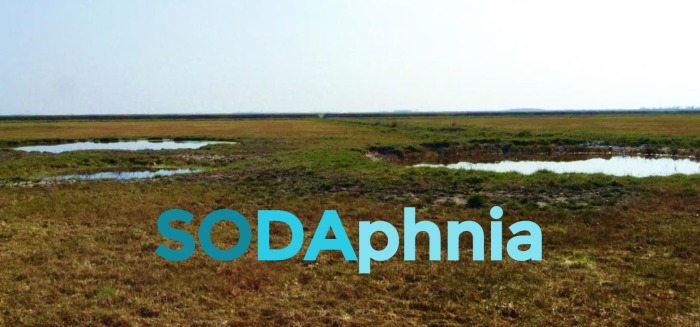Eco-evolutionary dynamics in unique ecosystems: sodic waters
Funding: FWO
PI: Luc De Meester (Laboratory of Aquatic Ecology, Evolution and Conservation, KU Leuven)
Collaborators from WasserCluster Lunz:

Project summary:
There is increasing evidence for rapid local genetic adaptation even at very small geographic scales (microgeographic adaptation). The water flea Daphnia magna is one of the model systems for which pronounced patterns of local adaptation to multiple environmental gradients have been documented. As populations genetically adapt to local conditions, this may change the dynamics of population and community assembly, patterns of landscape genetic variation, and ecosystem functioning. Quantifying these impacts is the key focus of this project proposal.
Sodic aquatic habitats are unique saltwater ecosystems that are locally dominant in Austria and Hungary. The zooplankton in these systems is strongly dominated by large-bodied Daphnia species, especially D. magna. This dominance by a species on which a lot of research has been done on local adaptive evolution offers a unique opportunity to test for the implications of local genetic adaptation on genetic structure and community assembly at the landscape level in natural systems. We will quantify levels of local genetic adaptation to salinity gradients in these unique systems and carry out field transplant and common gardening experiments to quantify the effect of microgeographic adaptation to salinity differences on landscape genetic structure and community dynamics as well as ecosystem characteristics.
https://www.kuleuven.be/onderzoek/portaal/#/projecten/3E180139?hl=en&lang=en